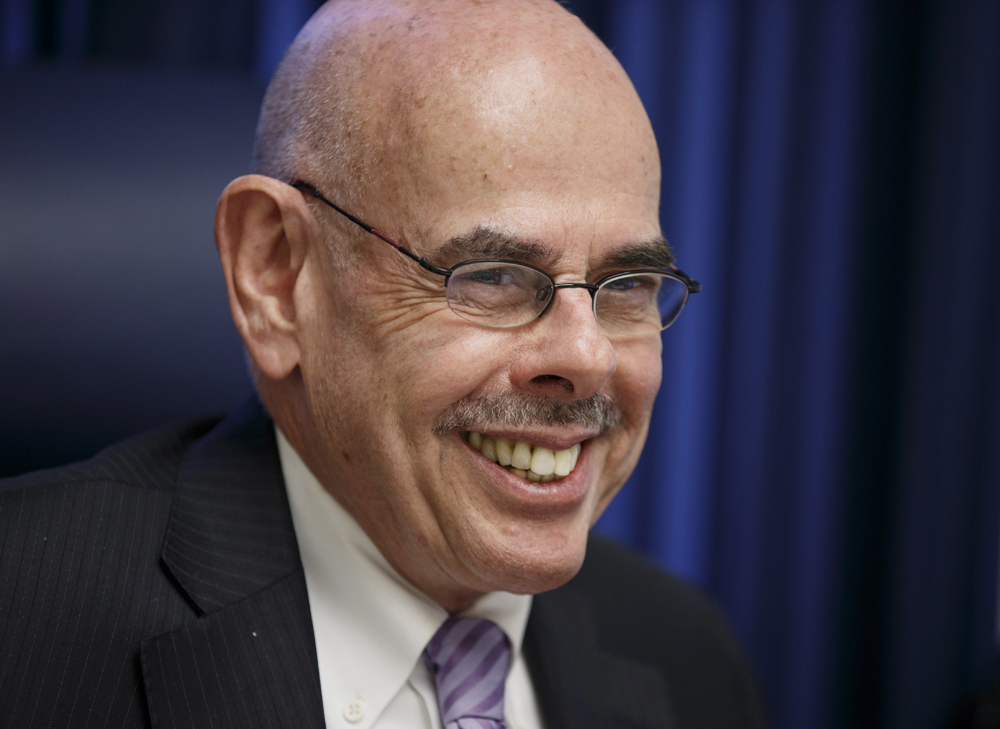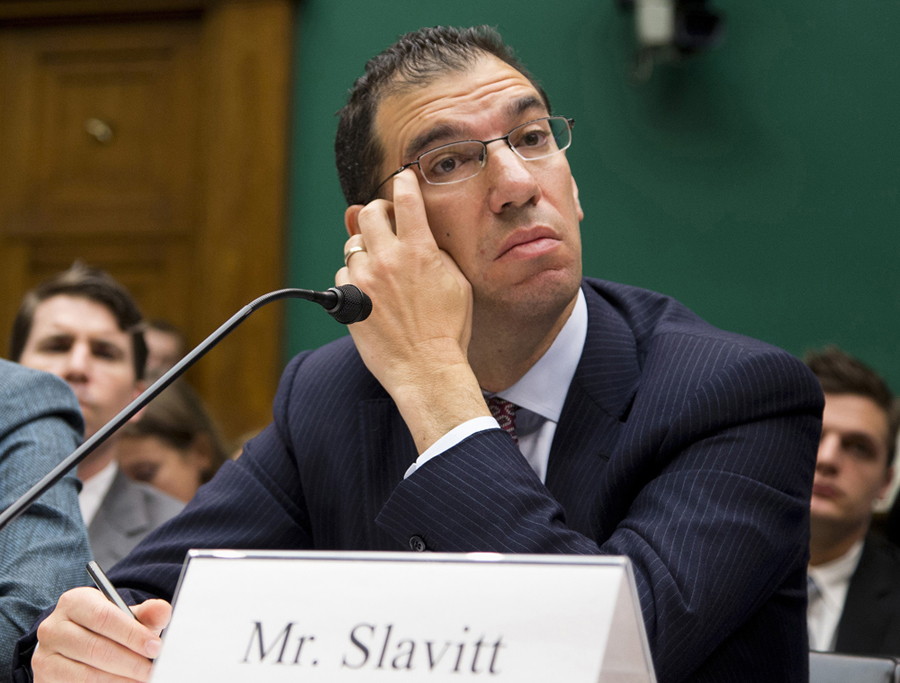The revolving door kept spinning through 2015, as Washington kept getting richer at the expense of the rest of the country. Hundreds of government employees went to K Street and Wall Street and hundreds went the other way. Here were the 12 most noteworthy spins:
12.) Nobody was surprised on Election Day 2014 when Sen. Mary Landrieu lost reelection, and nobody was surprised this May when she joined lobbying firm Van Ness Feldman. Her first client was a clean-coal project called Future Gen which is seeking federal dough.
11.) Sen. Mark Pryor left the Senate this year, depriving Democrats of a co-leader of their “Responsible Governance” campaign, which they had explained last decade “will close the revolving door that puts special interests before the people’s interests.” In March, Pryor joined the government affairs office of K Street lobbying firm Venable, whose clients include American Airlines, Altria, Chrysler and many more.
10.) The last three men appointed president of a regional Federal Reserve Bank are all Goldman Sachs alumni. Neel Kashkari (also a former TARP czar and GOP candidate for California governor) in November became president of the Minneapolis Fed. In September, Goldman alumnus Robert Kaplan took the helm of the Dallas Fed, and in March ex-Goldman guy Patrick Harker became president of the Philadelphia Fed.

9.) Rep. Henry Waxman, D-Calif., was revered as a lawmaker’s lawmaker in his 40 years in the House. Mainstream newspapers would call Waxman the “lobbyists’ nightmare” and “a foe of corporate lobbyists.” Maybe other lobbyists today fear him as a competitor — his Waxman Strategies, on M Street in downtown, has T-Mobile as a client along with a handful of healthcare interests affected by Obamacare, which he helped craft.
8.) Elizabeth Warren explained that the problem with other financial regulators was captured by industry, fueled by the revolving door. The Consumer Financial Protection Bureau was going to be different. It isn’t. In 2015, more than a dozen CFPB employees left for the private sector, according to The Hill, and “have departed to work at law or consulting firms, corporations and nonprofits since the agency opened its doors in 2011.”

7.) He’s not registered as a lobbyist yet, but former Sen. Saxby Chambliss, R-Ga., is already a valued partner at the K Street giant DLA Piper. The firm touts his service on the Armed Services, Agriculture and Intelligence Committees. His job at DLA Piper will be to “counsel clients on a wide range of issues at the intersection of law, policy and business.”
6.) Democrats and K Street had to fight hard this year to revive the Export-Import Bank, which conservatives sent into liquidation for five months. In the midst of the fight, Boeing — whose exports account for a full 40 percent of all Ex-Im financing — brought in some firepower: The jetmaker hired as a Vice President Kevin Varney, who was chief of staff at Ex-Im in Obama’s first term.

5.) When you think of the revolving door at the Federal Reserve, you may imagine the entanglement of the regulator and the regulated — such as Goldman Sachs. But the Fed also dictates U.S. monetary policy. Arguably no private firm is more affected by monetary policy than bond giant PIMCO. So it was natural that in 2015, former Federal Reserve Board Chairman Ben Bernanke joined PIMCO as a senior advisor.

4.) Deposing John Boehner for Paul Ryan was a Tea Party coup that left many Tea Partiers nevertheless uneasy. These skeptics felt vindicated by Ryan’s first big hire: revolving-door lobbyist David Hoppe as his chief of staff. Hoppe ran his own law firm for the past couple of years, with Delta and Ford among his clients.

3.) President Obama said he was going to stop the revolving door, and he spoke as if Obamacare was a broadside to the industry. If you believed either of these lines, you were surprised in 2011 when Obama picked hospital executive Marilyn Tavenner as Medicare administrator. Not done with the revolving door, Tavenner cashed out in 2015 to become president of America’s Health Insurance Plans, the largest lobby for the insurance industry, which is — thanks to Obamacare — increasingly dependent on the Centers for Medicare and Medicaid Services (CMS) for profits.

2.) The insurers didn’t leave Obama’s CMS in the lurch. In exchange for Tavenner, the insurers sent over Andy Slavitt, former executive at insurance giant Aetna. The musical chairs routine came into focus late this year when Tavenner’s group lobbied Slavitt’s agency (formerly run by Tavenner) for a full bailout through Obamacare’s Risk Corridors — and Slavitt agreed to bailout the industry (formerly occupied by him).

1.) Nobody loved to attack Republicans as stooges for industry more than Barney Frank did. Nobody, before Elizabeth Warren, was touted as a scourge of the banks more than Barney Frank. No legislation since Glass-Steagall was portrayed as an attack on the banks as much as Dodd-Frank.
This summer, of course, Barney Frank joined a bank.
Frank was elected to the board of New York-based Signature Bank in 2015. This shocked some finance writers, but Signature’s CEO had foretold exactly this hire back in 2010. Back then, just after Dodd-Frank’s passage, Signature’s CEO explained that thanks to “a multitude of new regulations to comply with, and now they have to hire compliance experts and lawyers and other cost-generating personnel rather than revenue-generating workers.”
From member of Congress to “cost-generating personnel” — it’s almost like Frank never changed jobs!
Timothy P. Carney, The Washington Examiner’s senior political columnist, can be contacted at [email protected]. His column appears Tuesday and Thursday nights on washingtonexaminer.com.

